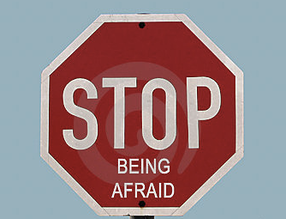In fact, it’s almost like all of these ‘nevers’ are invented by screenwriters to make us feel like we have more control over what happens to our scripts than we really do.
“How could he not like it?! I didn’t do anything on that list of stuff I can never, ever do!”
He didn’t like it because you were too busy worrying about rules to focus on improving your writing, and getting your work where it needs to be.
So this article is actually a reason for many screenwriters to rejoice. All those little things you force yourself not to do when you write… You can start doing them again!
Keep reading to find out exactly what I’m talking about…
Voiceover
In comedy, voiceover is a really handy way to set up jokes or deliver punchlines.
In drama, voiceover is an awesome way to get deeper into the character’s psyche.
There are only two real guidelines to voiceover, 1) Don’t use it to repeat information the reader already knows. 2) Be consistent (if you use it early, use it often).
Flashbacks
Flashbacks are incredibly useful in all genres. They work best when they provide information that pushes the story forward.
They also work well when they happen in place of a character monologue about a past event. If it’s more interesting to see what happened than to hear a character talk about it, a flashback could be exactly what the (script)doctor ordered.
Writing what can't be seen
But that's nonsense. Great writers write stuff that can't be seen all the time, and it's a big part of what makes their scripts enjoyable.
Our favorite way to use this technique is to tell the reader how the main character is feeling at the moment. A line like, "He watches her go, finally confident that what they have is real," can be extremely useful.
That was a bad example, but you get the point.
What else?
We only listed three here. Share more in the comments!


